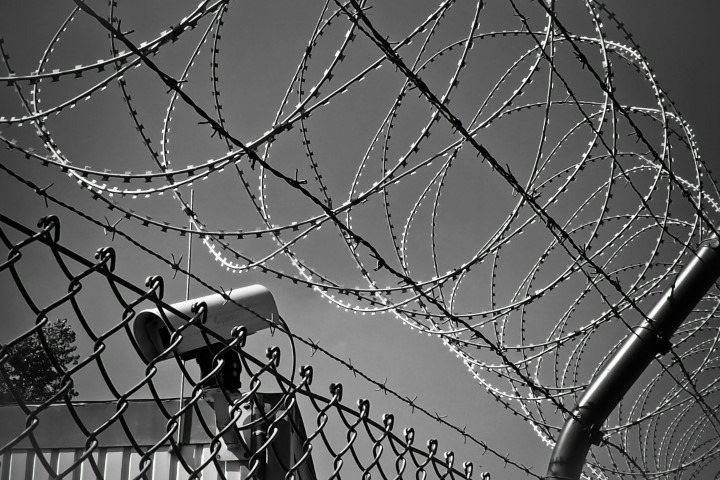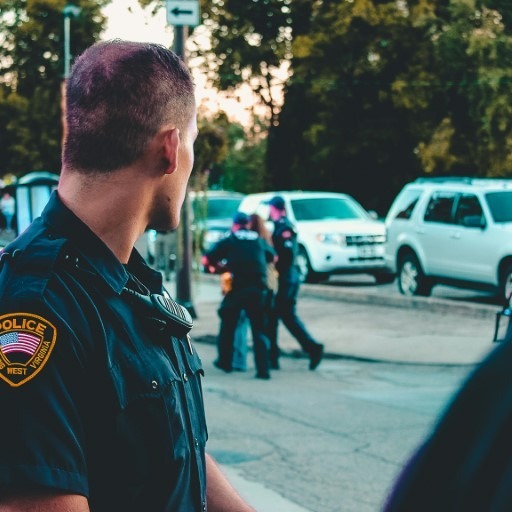What is a Corrections Officer?

Corrections officers, as the vanguards of order and safety, play a pivotal role in prisons, jails, and other detention facilities.
The primary duty is to carry out the rules, security checks, and emergencies to maintain security in the jail for inmates, staff, and entering visitors. In cooperation with counselors, social workers, and medical staff, corrections officers offer their help in rehabilitating inmates and creating a positive environment where they can change.
What are the duties of a Corrections Officer?
A Corrections Officer’s role is multifaceted, with a myriad of responsibilities that contribute to the effective functioning of the prison institution. Here’s a more detailed breakdown:
Supervising and Monitoring Inmates: The correctional officers are charged with monitoring the inmates’ activities and behavior within the facility. This will involve checking patrol and security cameras and trying to stop any brawls and other disruptions.
Security Checks and Inspections: In the first place, intensive security checks and inspections are crucial for success in correctional officer work. They have to check the cells, common areas, and visitors to verify that rules and regulations are followed and prevent contraband introduction.
Enforcement of Rules and Regulations: The correctional officers maintain peace within the prison walls and keep the law and order as they are laid down in the facility by the bars and regulations. This involves taking action against rules infringements/violations, giving disciplinary actions occasionally, and providing a safer and more secure ground for all inside the delimited facility.
Emergency Response: The role of a corrections officer is to be ready and able to deal with emergencies like fights, disturbances, medical situations, or natural disasters as soon as they occur. They will take part in specially organized training courses, where the basics of emergency response protocols and procedures will be taught. They will also be in charge of making the right decisions that will help minimize risks and safeguard everyone present.
Inmate Escort and Transportation: Another highlight of a corrections officer’s duties is supervising inmates while being transported to different areas within and outside the facility using a bus or a van. This can be anything from taking inmates to court appearances, medical appointments, or recreational activities to ensuring that security protocols are being followed strictly throughout the process.
Documentation and Reporting: For guards, record writing is another job requirement. They must record incidents and activities and explain why punishments or night confinement must occur. Only then can they make out the cause of inmate behavior changes, take action, and give advice where necessary. This document is one of the essential tools that help to determine compliance with prisoner behavior, security risks, and the creation of records that the administrative and legal systems can access for evidence.
While safety is paramount, corrections officers also play a significant role in reforming and reintegrating individuals into society. They can actively participate in programs such as education, vocational training, or counseling, which are designed to reduce recidivism and promote positive behavior change. This aspect of the job offers a unique opportunity to make a lasting, positive impact on the lives of inmates.
Collaboration with Multidisciplinary Teams: For correctional officers, communicating effectively with others like counselors, social workers, medical staff, and administrative personnel is a daily practice. They work together to meet the varied needs of inmates. This collaboration allows for the implementation of full services to inmates, including inmate care and management, in the institution.
Contraband Detection and Prevention: The responsibility of the corrections officers is to conduct searches and inspections to detect and prevent the presence of illegal items such as weapons, drugs, or unauthorized materials. This mainly works on the discipline of interfering with smuggling activities before they are completed with the provision of a safe operating environment.
Providing Guidance and Support: As the population shifts from rural to urban areas, so does the breakdown of traditions, customs, and relationships. Thus, the demand for advisory and mentoring services regarding cemetery management issues is increasing. Perhaps the staff will offer them counseling, conflict resolution, or even basic needs assistance to help them overcome problems and make good decisions.
Perimeter Security: Correction officers oversee internal security operations and are responsible for maintaining the institution’s boundaries. This total implies the officers undertaking routine patrols, inspecting the fence, and implementing access control measures to avoid trespassers and escape.
Professional development is not just a perk, but a fundamental part of a career as a corrections officer. Regular training, workshops, and certifications are provided to help officers stay updated with industry standards and adapt to emerging security challenges. This commitment to continuous learning offers a promising path for personal and professional growth.
Routine custody tasks are only possible if the correctional officers diligently perform them. In the process, they contribute to the safe, secure, and rehabilitative operation of correctional facilities while adhering to the ethical values of justice, integrity, and professionalism.
Requirements to be a Corrections Officer

Aspiring corrections officers must meet a set of requirements to embark on this career path, including:
- Education: A GED or high school diploma is usually needed to begin a career in this field. Candidates may be preferred by other agencies with post-secondary education or coursework in criminal justice or related fields, but learning opportunities can be extended.
- Age: All agencies have a minimum and a maximum age for corrections officer positions. Applicants to all jurisdictions are required to be 18 or 21 years old, depending on the age specified in the jurisdiction. In addition, some agencies may also have age limits, depending on the age being served.
- Experience: Although some people think having a background in law enforcement or security is a good idea, it is only sometimes a must to become a corrections officer. In addition to many agencies, the on-the-job training is still solid, creating favorable conditions for implementing corrections jobs for new hires of different backgrounds.
These prerequisites are intended to ensure that all hopefuls possess the essential educational grounding, wisdom, and potential to be worthy candidates for the complicated job of a detention officer.
What is the testing process to get a job as a Corrections Officer?
Application: All candidates who desire to be selected in this process must complete an application to the hiring agency. This is the primary platform on which candidates can show their willingness to interview for the job.
Written Examination: Applicants may be asked to take a written test to evaluate their knowledge of basic skills, such as reading comprehension, writing proficiency, and mathematics. This ensures that the candidates are already equipped with the foundational skills that are helpful in their roles during the duties of a corrections officer.
Physical Fitness Test: Candidates have to pass a physical examination that will assess their specific ability to carry out some physical duty assigned to jail officers. The training may comprise activities like running, lifting, and restraining the inmates, which are necessities for ensuring the safety and security of the correctional facility.
Psychological Evaluation: Candidates can undergo a psychological examination to see if they can handle the stress of their basic training, cope with the working conditions in the penitentiary, and perform their duties efficiently. This is useful to ascertain whether they are experiencing any mental health challenges during this period or have a personality that could affect job performance.
Interview: Candidates with the required qualifications may be asked to interview with the employer agency’s representatives. The interviewing process begins with a candidate being asked about his/her qualifications, experience, and interests in a possible occupation. In this case, the hiring authority can assess the candidate’s nature of work and capability and either approve or decline them depending on whether they are a good fit for the organization.
In conclusion, the examination process is meant to ensure that applicants are qualified and possess the characteristics essential for the success of a corrections officer.
What types of agencies have Corrections Officer?

Federal Bureau of Prisons (BOP): The only entity responsible for administering federal correctional institutions and facilities.
State Departments of Corrections: State-level prisons and correctional facilities fall under the legal responsibility of the Governor.
County Sheriff’s Offices: Some counties run jails and detention centers, which means that the case detectives need to ensure the cleanliness and order of the buildings.
City or Municipal Jails: The local government might have some local jails or detention centers, where they use correction officers as staff.
Private Correctional Companies: Some correctional facilities are the responsibility of private companies, and the corrections officers are their employees.
They establish correctional facilities and employ the guards tasked with maintaining a safe atmosphere that humanely handles the inmates and guarantees the safety of the staff.
What will disqualify someone from becoming a Corrections Officer?
To become a Corrections Officer, certain disqualifying factors include:
- Felony convictions or severe criminal offenses
- Domestic violence charges or restraining orders
- Substance abuse or addiction issues
- Dishonorable discharge from the military
- Falsification of application or background information
- Failure to pass the physical fitness test
- Failure to pass the psychological evaluation
- Disqualifying medical conditions
- Inability to obtain necessary security clearances or certifications
Even if you’re concerned about one of these, it’s important to stay honest throughout the application. The impact of these factors may vary based on state laws and agency rules, which can influence the significance of each disqualifier.
What is the pay for a Corrections Officer?

The payroll of Correctional Officers may fall into very different scale bands depending on various elements, such as geographical location, this Officer’s level of experience, and the government or private organization. In most cases, however, correctional officers get salaries and benefits that are comparable to those of other jobs.
Generally, new job chances come with initial salaries ranging from $30,000 to $40,000 per annum, but this depends on the area’s specific region and cost of living. After a few months of work and more professional training, correctional officers may be suitable for better-paid positions or even work their promotion within their particular correctional agency. Some organizations may also provide extra hours of work, shift differentials, and other bonuses. Moreover, officers employed in the corrections system could be given retirement benefits, health coverage, and the rest of the incentive package through compensation. It should be noted that compensation packages and the benefits of different correctional institutions may vary significantly from one to another. Thus, those who aspire to work in the corrections sector should check the websites of other agencies and institutions to look for data on their remuneration and benefits systems.
What is involved in the Corrections Officer Training Program?
The training program for corrections officers is an extensive program that aims to give the recruits the necessary skills, knowledge, and expertise to carry out their duties efficiently and prevent security and safety problems in correctional facilities. This multifaceted program encompasses various components, including This multifaceted program encompasses multiple components, including:
Orientation: New associate trainees undergo a promotional list to get acquainted with the prison’s rules, processes, and standards. Job shadowing or internships will familiarize students with the organizational structure, chain of command, and those in leadership positions within the healthcare settings.
Classroom Instruction: The training curriculum consists of lengthy classroom instruction covering a wide range of subjects directly connected to the duties of a corrections officer. This involves learning as the course content ranges from basic legal principles to constitutional rights, prison management techniques, crisis intervention strategies, and dispute resolution procedures.
Hands-On Training: Besides theoretical instruction, the recruits get practical training using different tools and equipment to perform their tasks. This also includes training in defensive tactics, physical restraint techniques, and use-of-force protocols. Recruits learn problem-solving and management skills during scenarios like interrupting inmate fights, searching cell blocks, and emergency servicing so that they can apply their new knowledge when the scenarios become real.
Firearms Training: Every corrections officer must undergo thorough firearms training to learn how to safely and successfully use the weapons when needed, which proves their proficiency in handling firearms. This training covers topics such as firearm safety, marksmanship, weapon maintenance, and proper use of force escalation and de-escalation techniques. The trainees must demonstrate their ability to maneuver tactical operations, especially marksmanship, during emergencies. Recruits must learn firearms and the skill of targeting enemies in emergencies.
Scenario-Based Training: Candidates can be given practical exercises built to match the challenges that an officer might face in daily routines in similar facilities. These situations may include attending to medical emergencies, managing volatile inmate actions, conducting inmate searches, and making sure that inmates have the right movement within the facility.
Role-Playing Exercises: Role-playing sessions, where recruiters are involved in the actual practice of dialogue and conflict resolution skills, are the ones that will bring the best result. Students can take part in various roles, such as officer and prisoner, to touch many aspects of their jobs. Such physical activities are beneficial in developing interpersonal skills and empathy and improving communication skills and rapport, which is very useful in jails.
Legal and Ethical Training: Recruits get training on the ethical and legal obligations of guards (individuals responsible for corrections), such as keeping inmate rights and records confidential and adhering to the code of conduct professions. These individuals are the reinforcement mechanisms on which they learn about the results of misbehaviors, infringement of authority, and breach of inmates’ constitutional rights, emphasizing the values of integrity, fairness, and impartiality in their activities.
Field Training: After instruction in the classroom and simulated exercises, recruits go for field training when assigned to work with experienced corrections officers on the job. This gives the recruits a basis to witness and even take part in real-life scenarios, apply their knowledge in a practical setting, and have their performances evaluated and improving tips offered by the seniors.
The whole program aims to ensure that new officers emerge as adequate and bold officers with the appropriate skills and experience to cope with the correctional environment.

 Joseph Libowsky,
Joseph Libowsky,